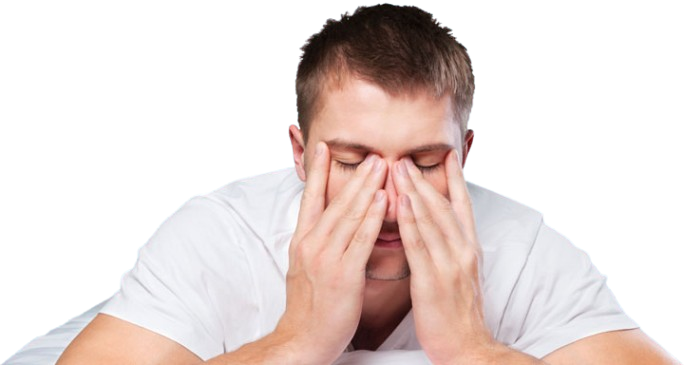Sleep Disorders
RLS and PLMD
Struggling with Restless Legs Syndrome or Periodic Limb Movement Disorder?
If your legs seem to move on their own when you try to relax, you might be dealing with restless leg syndrome. It is more common than many people realise. In New Zealand, it affects a noticeable number of adults, and women tend to report it more often than men.
Those who live with restless legs syndrome NZ often talk about a tingling or crawling feeling deep in their legs, a kind of restlessness that eases only when they move. The sensations usually creep in during the evening or soon after lying down, making it hard to relax. Some people also feel it in their arms, which can make settling into sleep even harder.
At Auckland Sleep, we see how draining this can be. Restless leg syndrome and periodic limb movement disorder interrupt proper rest and leave people short on energy and focus the next day. The positive news is that treatment works. With the right plan, symptoms can be brought under control, and sleep can feel normal again.
How We Can Help
Our goal is to help you get back to deep, uninterrupted sleep. It begins with our detailed sleep questionnaire, designed to identify symptoms and possible triggers. Every person’s experience with restless legs syndrome is slightly different, so each treatment plan is personalised.
At our sleep clinic Auckland, we bring together ENT knowledge and sleep medicine experience to look at the whole picture, not just the symptoms. Once your results are reviewed, our specialists talk through what is happening and what can be done about it. For some people, small lifestyle adjustments make a real difference. Others benefit from medication or a mix of both approaches. We take time to explain each option in plain language so you understand how the plan will ease discomfort and support better rest.
RLS and PLMD
While restless legs syndrome and periodic limb movement disorder often overlap, they are not the same. RLS causes the urge to move while you are awake, whereas PLMD happens during sleep, leading to involuntary leg jerks or twitching. Both conditions disrupt rest and can leave you tired, moody, or unfocused during the day.
RLS Symptoms
If you are living with restless leg syndrome, you may notice:
- A strong urge to move your legs after sitting or lying down for a short time.
- Tingling, crawling, or pulling sensations that only ease when you move.
- Relief from walking, stretching, or gentle leg movements.
- Symptoms that become worse in the evening or at night.
- Difficulty falling or staying asleep, often leading to daytime fatigue.
PLMD Symptoms
For periodic limb movement disorder, the signs appear while you are asleep. You may not notice them yourself, but your partner might. Common symptoms include:
- Repetitive leg jerks or twitches during sleep.
- Frequent night-time waking without knowing why.
Feeling exhausted or irritable during the day despite getting a full night in bed.
The causes of restless legs syndrome are not always straightforward. For many people, more than one factor plays a part. Research suggests that changes in dopamine levels, the chemical that helps the brain control muscle movement, can influence symptoms. Family history, general health, and even certain medications may also contribute to how often the sensations appear and how severe they become.
Common risk factors include:
- Age: Symptoms can start at any time, but they tend to become more noticeable as people get older and sleep patterns change.
- Gender: Women are slightly more likely to experience restless leg syndrome NZ, particularly during pregnancy or as hormone levels shift over time.
- Health conditions: Problems such as diabetes, kidney disease, or sleep apnoea can interfere with circulation and nerve function, increasing the chance of restless legs.
- Iron deficiency: Low iron or anaemia can affect dopamine balance, which often worsens symptoms.
- Medication: Some antidepressants, antihistamines, or other prescriptions may aggravate restlessness or make it harder to stay still.
Understanding what sits behind your symptoms helps our specialists at Auckland Sleep choose the right restless leg syndrome treatment for longer-term relief.
There may not be a complete cure, but the right plan can dramatically ease discomfort and restore proper sleep. At Auckland Sleep, our specialists use proven methods to manage both restless leg syndrome and periodic limb movement disorder.
Treatment options include:
- Medication: Dopamine agonists or anticonvulsants are often used to calm leg activity.
- Lifestyle changes: Reducing caffeine and alcohol, staying active, and following a regular bedtime can help prevent flare-ups.
- Sleep routine adjustments: A calm, consistent evening routine lowers stress and supports better sleep.
If you have wondered how to stop restless legs immediately, simple steps such as stretching before bed, applying gentle warmth, or a short walk can help ease the urge. Our sleep specialists Auckland can tailor a full plan that suits your body and lifestyle.

Getting a diagnosis
If you are tired of restless nights and twitching legs, it may be time for a full assessment. At Auckland Sleep, we use overnight sleep study NZ testing, known as a polysomnogram, to measure movements, oxygen levels, and sleep quality. We also check iron, vitamin B12, and thyroid levels to ensure nothing is missed.
You do not need to keep struggling with restless leg syndrome. Our sleep clinic Auckland team provides detailed diagnosis, targeted treatment, and ongoing support so you can regain deep, restorative rest.

If you want to learn how your RLS and/or PLMD is affecting you and what treatments can help, take our sleep test.
